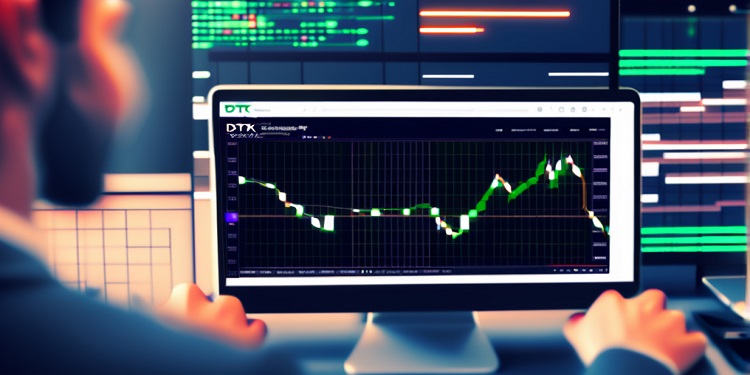Decentralized finance (DeFi) continues to gain traction as the future of financial innovation, even though it has yet to achieve mainstream adoption. At the forefront of this evolution is DTX Exchange, a blockchain-based trading platform designed to connect the crypto ecosystem with traditional financial systems. With its innovative hybrid model, DTX aims to onboard the next billion users by providing seamless trading opportunities across various asset classes.
DTX Exchange stands out by combining the benefits of centralized exchanges (CEX) with the flexibility of decentralized exchanges (DEX). The platform’s unified blockchain enables the integration of conventional financial instruments and Web3 products, allowing users to trade a wide range of assets in a secure and efficient environment.
A hybrid model for modern traders
As a hybrid trading platform, DTX Exchange leverages the strengths of CEXs and DEXs to address the long-standing challenges of the $10 billion global trading market. Its one-stop protocol facilitates trading across thousands of asset classes, providing traders with up to 1,000x leverage on certain assets. This feature allows users to maximize their market exposure and potential earnings even with minimal initial investments.
DTX aims to meet the growing demands of traders, who are increasingly seeking broader asset exposure, enhanced security, significant liquidity and lower trading costs. With these needs in mind, the platform design focuses on solving the key limitations of the current financial landscape.
Solving industry challenges through innovation
DTX Exchange targets several critical issues hindering the adoption of DeFi trading, including financial exclusion, limited access to various asset classes, centralization, high fees, and liquidity constraints. Its solutions are adapted to respond effectively to these challenges.
By adopting wallet-based trading, DTX promotes financial inclusion, allowing individuals to trade directly from their crypto wallets without the need for traditional bank accounts. This feature is particularly important for those with limited access to formal banking systems, as it enables global participation in financial markets.
To improve asset security, the platform uses non-custodial storage, ensuring that users maintain full control over their funds. Assets are securely stored in individual wallets, minimizing the risks associated with centralized storage solutions.
DTX also addresses the lack of diversified asset classes by introducing tokenization and fractional ownership. Users can access symbolic representations of real-world financial instruments, commodities, and tangible assets, creating opportunities for broader market participation.
Additionally, distributed liquidity pools are used to overcome liquidity problems in the trading market. These pools enable transparent trading and ensure the platform is accessible globally, setting it apart from many centralized trading solutions.
Promising outlook for DTX Exchange
Industry experts consider DTX Exchange a promising competitor in the DeFi space. Its hybrid approach and ability to bridge decentralized and traditional finance make it an attractive platform for traders and investors. By addressing financial exclusion, liquidity shortages, and demand for diversified assets, DTX is positioned for widespread adoption and growth.
The platform’s initial coin offering (ICO) has already garnered considerable attention. With a token price of $0.10 in its fifth funding round, DTX is considered undervalued compared to major altcoins. Analysts predict a potential 100x increase in value once the token is listed on Tier 1 exchanges. Early funding efforts raised over $8.2 million, solidifying its position as a new promising cryptocurrency to watch.
With its innovative solutions and strong fundamentals, DTX Exchange is poised to play a pivotal role in shaping the future of DeFi, providing traders and investors with a secure, inclusive and versatile platform to navigate a changing financial landscape.




